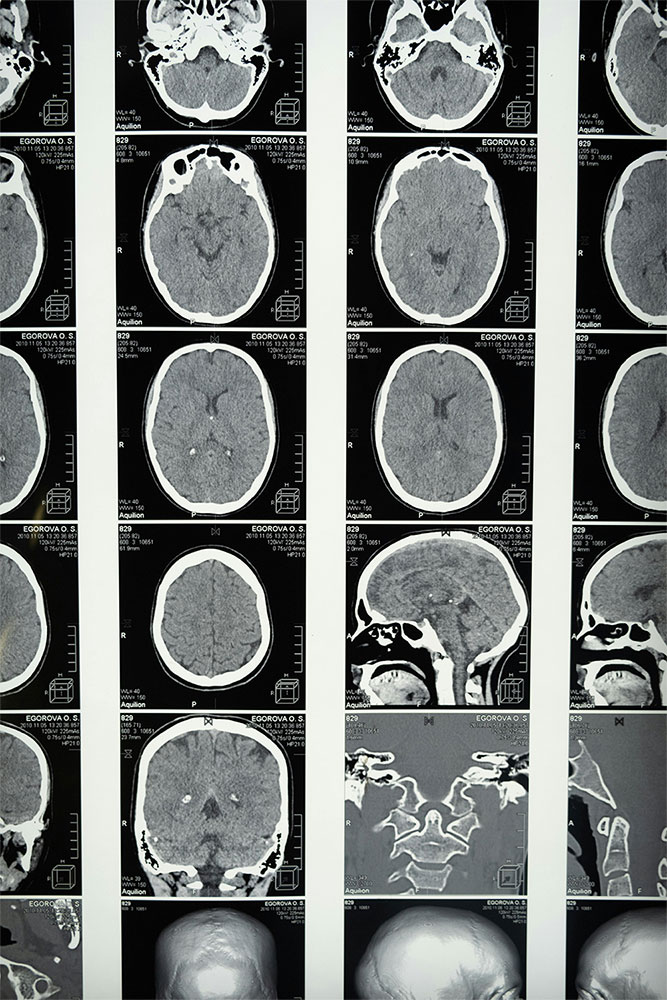In this article, we will learn about the potential risks for dementia patients using Xanax (Alprazolam) and other benzodiazepines. We will learn about safer recommendations and whether Xanax can cause memory loss.

Christopher Ravn
Key Takeaways
1. While Xanax doesn't directly cause dementia, long-term use may contribute to cognitive decline and increase dementia risk in older adults.
2. Benzodiazepines, including Xanax, have been linked to an increased risk of dementia in some studies, particularly with long-term use.
3. Xanax can cause short-term memory loss and other cognitive impairments, but these effects are usually reversible upon discontinuation.
Table of Contents
1. The Relationship Between Xanax (Alprazolam) And Dementia
2. Does Xanax Cause Dementia?
3. Does Xanax Cause Alzheimer's?
4. Is There A Link Between Benzodiazepines And Dementia?
5. Benzodiazepines Usage And Risk Of Dementia
6. Valium And Dementia
7. Lorazepam And Dementia
8. Negative Impacts Of Benzodiazepine Use
9. Does Xanax Cause Memory Loss? Alprazolam Impact On Cognitive Functions
10. Is Xanax Bad For Older Adults?
11. Distinguishing Between Effects Of Xanax And Dementia Symptoms
12. Let’s Look At Other Medications That Can Cause Dementia
13. Frequently Asked Questions About Xanax And Dementia
The Relationship Between Xanax (Alprazolam) And Dementia
Xanax or alprazolam, is a medication that is normally used to treat panic, anxiety, and even insomnia disorders. It is a medication that falls under the category of benzodiazepines and enhances the effects of a neurotransmitter called gamma-aminobutyric acid (GABA) that is in the brain.
Dementia is a decline in brain function involving language, memory, and problem-solving skills. It is a severe decline that impacts daily life and Alzheimer’s disease is a type of dementia that is linked to approximately 60–80% of the total dementia cases.
Does Xanax Cause Dementia?
There have been concerns regarding the link between Xanax and the risk of dementia. The British Medical Journal has stated that benzodiazepines, including Xanax, may increase the risk of Alzheimer’s Disease. However, another study posted by Alzheimer’s & Dementia stated that benzodiazepines did not show a risk of dementia in older adults. A meta-analysis of benzodiazepines showed that they were linked with dementia risk, especially in older adults.
Xanax can contribute to cognitive decline where the medication can affect new memories being formed which causes one to struggle to learn or remember new information. Another contribution is that Xanax slows down the processing speed of the brain, which causes issues with attention span and problem-solving. It is also known to increase the risk of falls and injuries.
Does Xanax Cause Alzheimer's?
Though Xanax is not directly linked to the cause of Alzheimer’s disease, it is important to know that it does contribute to the development of cognitive decline and dementia in older adults. There are studies that indicate benzodiazepine use and its link to an increased risk of Alzheimer’s disease.
It is important to address the common concerns and misconceptions about using Xanax. For instance, it is believed that Xanax causes dementia. However, Xanax is known to contribute to cognitive decline and dementia in older adults. Another misconception is that Xanax is safe when used for a long time. However, one should only take Xanax for short periods, as long-term usage can lead to cognitive decline and addiction to the medication.
Is There A Link Between Benzodiazepines And Dementia?
Benzodiazepines are psychoactive drugs that have been used to treat insomnia, anxiety, and seizures. They enhance the activity of a neurotransmitter called gamma-aminobutyric acid (GABA), a chemical naturally produced in the brain that calms and slows nerve activity. Benzodiazepines work by binding to GABA receptors in the brain, enhancing the frequency of the calming effect, which can cause sedation.
Other types of benzodiazepines include Valium (diazepam), lorazepam, alprazolam, midazolam, and clonazepam.
We Believe Prioritizing Brain Health Enhances Your Quality Of Life
Get to know our team, our mission and how our EVY LIGHT® can provide you and your loved ones with a fuller life, letting you breathe a little easier.
Benzodiazepines Usage And Risk Of Dementia
There have been a few studies that have highlighted the potential link between benzodiazepine use and the risk of developing dementia. The risk of dementia was only seen if there were long-term usages, used over a timeframe of more than 5 years and the longer the usage, the higher the risk.
- Using benzodiazepines for a long time can downregulate GABA receptors. This will hinder normal brain function.
- It may accumulate a protein called amyloid-β, which is common in Alzheimer’s patients.
- The medication can cause the blood to inflame, which can pose a risk of developing dementia.
- Benzodiazepines may disrupt neural plasticity. This changes brain function and increases the risk of dementia.
Valium And Dementia
A type of benzodiazepine is valium. This medication has been used on insomnia and anxiety patients. Long-term use of this medication may increase the risk of dementia. Hence, studies have indicated that Valium that has a long half-life may harm the cognitive reserve capacity; they showed a 32% increase in Alzheimer’s if taken within 3-6 months and an increase of 84% if taken for more than 6 months.
Lorazepam And Dementia
Another benzodiazepine, called lorazepam, is also used to treat anxiety and insomnia. Some studies have shown that using lorazepam for a long time may increase dementia risk, show more cognitive impairment compared to alprazolam, and be the most frequently prescribed benzodiazepine. This medication is used alongside antipsychotics and antidepressants.
When used in the long term, lorazepam may potentially cause cognitive impairment and a risk of dementia. It is still not understood what the mechanisms are. One thing is that it shows the potentiality of accumulating cognitive deficits and has neurotoxic effects.
Negative Impacts Of Benzodiazepine Use
The negative impacts of benzodiazepine use include feeling drowsy, sleepy, or lethargic; feeling tired and exhausted; loss of balance; being unable to remember things; being unable to speak clearly; being unable to focus well, sensitive to light and sound; and feeling annoyance and frustration. However, one may try light therapy for dementia to help ease the symptoms.
What Are The Negative Effects Of Taking Alprazolam (Xanax)?
The short-term negative effects of taking alprazolam are issues with coordination, having low pressure, being unable to speak clearly, increased libido, drowsiness, fatigue, dizziness headaches, memory issues, and depression.
The long-term effects of taking alprazolam are physical dependence and addiction. Hence, some patients may suffer from withdrawal symptoms when they stop taking the medication.
These withdrawal symptoms can range from insomnia, tremors, anxiety, and even seizures. The cognitive issue of taking Xanax has been linked to memory loss, being unable to solve problems, and issues with concentrating. Long-term usage also causes changes in mood, such as depression and anxiety, sleep issues, an increased risk of accidents and injuries, fertility issues, a weakened immune system, thyroid issues and other hormonal imbalances, and an increased risk of seizures. Thus, it is important to find out how to help someone with dementia remember.
Physical And Psychological Effects Of Benzodiazepine Long-Term Use
Long-term use of benzodiazepine can lead to physical and psychological effects such as dependence on the drug, withdrawal symptoms such as insomnia, tremors, anxiety, and restlessness, and worsening of symptoms such as panic attacks. The common complaints that are linked with Alprazolam are feelings of fatigue, slurred speech, poor concentration, hypersensitivity, and irritability. There is a risk of misuse of all benzodiazepines, including tolerance, diversion, and physical dependence on the drug. The most common would be misuse and diversions and the most common is seen in those who have a family history of drug and alcohol abuse.
This side effect can be worsened if Xanax is mixed with antidepressants, opioids, and alcohol, which increases the risk of breathing issues, sedation, or coma. Note that constantly taking sedatives is linked with cognitive issues, psychomotor impairment, and being addicted to them.
Does Xanax Cause Memory Loss? Alprazolam Impact On Cognitive Functions
Xanax can have a negative impact on both short-term and long-term memory. One study found that there was no memory impairment after drug withdrawal, which tells us that it may not be due to the residual effects of the medication. Hence, this could be because of the drug’s interference with practice effects. Another study suggested that alprazolam did impact memory in the areas of attention and executive function. However, it is important to remember that these impairments are reversible and improve after the patient stops taking the medication.
Some patient reports have indicated that taking Xanax too long can affect memory. There have been reports of people having issues recalling events and others have noted that they experienced memory lapses and confusion.
Can Xanax Cause Short-Term Memory Loss?
Xanax can cause short-term memory loss when taken in large doses or for a long period of time. A study from the Journal of Clinical Psychopharmacology said Xanax can cause memory and cognitive problems. This is especially prevalent in those with a history of substance abuse. Some patients have reported that they experienced difficulty remembering events, conversations, or appointments when taking Xanax.
However, Xanax side effects can be reversed once the patient stops taking the medication. It is still not known the extent of the memory loss, as this varies from patient to patient.
Is Xanax Bad For Older Adults?
- Xanax is bad for older adults as it is related to changes in the brain and it is important to be cautious because as people age, their brain function naturally changes.
- Having less production of neurotransmitters that are involved with memory and learning.
- Reduced blood flow to the brain is linked with a decrease in cognitive function.
- Heightened medication sensitivity, including Xanax
Can A 70 Year Old Take Xanax?
Though anyone at any age can take Xanax, it is important to discuss the potential risks with a healthcare provider. Generally, Xanax is not recommended for older adults because of the adverse risks of the medication.
How Much Xanax Can An Elderly Person Take?
An elderly person should be cautious when taking Xanax and a healthcare provider should be consulted. This is because it is important that the lowest possible dose be provided to reduce the side effects. Hence, it is important to ensure that the benefits always outweigh the risks. Moreover, it is important to consider alternative treatments if possible.
Benzodiazepines Dosage Guidelines For Elderly Patients
- Begin with low dosages and increase as needed. Always ensure the lowest dosage is used and for a short time.
- Do not use benzodiazepines for more than 2–4 weeks.
- Ensure and check if there are any signs of tolerance, dependence, or even withdrawals from the medication.
- It would be better to consider other medications or non-pharmacological options for those who are suffering from anxiety and dementia.
Healthcare’s role is to ensure and inform patients about the risks and benefits of benzodiazepines. Ensure that the patient does not show signs of withdrawal or tolerance. Slowly try to reduce the amount of benzodiazepines so that there are no withdrawal symptoms. Healthcare providers should also encourage patients to inform them if they have any concerns or experience any form of side effects.
There are other safer alternatives that can be considered, such as cognitive-behavioral therapy for insomnia (CBT-I), relaxation techniques such as deep breathing, music therapy for dementia, and mindfulness-based stress reduction (MBSR). As for alternative medications, there are melatonin receptors for those with insomnia, selective serotonin reuptake inhibitors (SSRIs) for those battling anxiety and depression, and antihistamines such as diphenhydramine for insomnia. There are also sensory activities for dementia patients.

Enhance your brain performance through the power of light.
Comfortable and easy to use 40Hz light therapy to support and improve your brain function.
View Our LightDistinguishing Between Effects Of Xanax And Dementia Symptoms
It is important to be able to tell the difference between the effects of Xanax and dementia symptoms. This would cause a patient to be misdiagnosed or start to have unwanted concerns. Let us have a look at the differences between both:
Xanax can cause temporary memory lapses and lead to feelings of confusion, disorientation, and issues with concentration. It also slows down a person’s reaction to time and makes them feel drowsy, which can sometimes be thought of as signs of dementia.
The effects of dementia are seen in the gradual decline in cognitive abilities, feelings of confusion and disorientation, a crucial amount of memory loss, and mood changes such as depression, anxiety, and feelings of agitation. The difference is that the effects of Xanax are short-term, while dementia is long-term and gradually progresses.
Medication Effects Vs. Dementia Symptoms Overlap
It is known that Xanax side effects can mimic signs of dementia. This can prove to be a challenge to determine the conditions; thus, let us have a look at the symptoms:
Xanax can cause memory lapses, feelings of disorientation and confusion, changes in mood, and sleep issues. However, these symptoms are similar to those of dementia patients, and thus, it is important to seek the advice of a healthcare professional to rule out any underlying conditions, adjust the medication, and even monitor the individual’s condition to see if there are any changes.

Let’s Look At Other Medications That Can Cause Dementia
Here are other medications that can cause dementia. They are:
Antihistamines such as Benadryl, antimuscarinics such as ditropan, tricyclic antidepressants such as Elavil, antipsychotics such as thorazine, and benzodiazepines such as lorazepam.
A study found those who took anticholinergic medication for more than five years had a higher risk of developing dementia.
Learn What Others Have Experienced with EVY Light
See how others have achieved a sharper mind by activating their gamma brainwaves in combination with maintaining a healthy lifestyle.
Frequently Asked Questions About Xanax And Dementia
Can Xanax Cause Dementia?
While Xanax doesn’t directly cause dementia, long-term use may contribute to cognitive decline and increase dementia risk in older adults.
What Is The Link Between Benzodiazepines And Dementia?
Benzodiazepines, including Xanax, have been linked to an increased risk of dementia in some studies, particularly with long-term use.








































































